- Home
- Piers Anthony
Phthor Page 3
Phthor Read online
Page 3
“No!” Arlo cried, putting his hands on the girl. She was burning hot: another sign. “She is not an enemy! I hurt her, I brought her here—I must save her!”
Chthon paid no attention. More thickly now the awful white sludge formed, encrusting Ex so that she looked like forming stone.
Never before had Arlo sought to oppose his will to that of Chthon. Now it had to be done.
He drew his stalactite and placed the point to his own breast. He clasped both hands about the base and tensed his muscles. “Stop—or I die!” he cried.
Suddenly the will of Chthon was on him, forcing his muscles to go limp. Arlo fought, pressing the point in to cut his skin—but the force against him was incomparably greater than that of the dragon.
Before him the girl stirred. Flakes of white fell off her as she tried to stand. Arlo could not assist her. All his being was locked in the struggle with the god—a struggle he knew now he could not win. Chthon was too powerful; Chthon ruled all the caverns! To fight against Chthon was to become—a zombie.
Yet Arlo fought. White began to form on his own skin, the first glistening of the myxo slime. Heat raged within him—not the heat of passion, but of decimation. Slowly, inevitably, he was being crushed, but he would not quit.
Abruptly it stopped. He held his sword a moment longer, to be sure the siege had not merely been shifted back to the girl, then relaxed. Chthon had gone again.
The dragon hissed, the noise reverberating through the passages. Chthon had let it go, too!
Arlo took Ex out of the labyrinth in a hurry, before the dragon could reorient. Then on to another stream, a safe one, where he washed the repulsive myxo off her body and the blood from her hair. Then he brought her to his private garden.
The garden was in a tremendous cavern, so tall that the ceiling could not be seen from the sculptured flood. It was bright and warm, for not only did the walls and floor give off an especially fine glow, so did the delicate green and blue plants nestled in alcoves. But more than this, it was illuminated by steady, yellowish flame across the upper reaches: burning jets of gas, monstrous fire spouts that cast light and heat all the way to the bottom, except when clouds formed. The garden was also noisy—not with the rush of wind, but with the merging roar of falling water and jetting fire.
Arlo carried Ex to his favorite bower and laid her down beside the spuming base of the great waterfall. He fetched moss to pillow her head, but as he placed it, she sat up so alertly that he knew she had been awake for some time. “Hi,” she said.
He stared at her blankly. “What?”
She had spoken in a language of Old Earth, rather than Galactic. He was familiar with it, thanks to LOE, but had hardly expected this dead tongue to emerge from a living mouth.
“Oh, it hurts!” Ex cried, clutching her head and falling back.
Distracted, Arlo forgot the question he had been about to ask. He packed the moss under her head while she grimaced with evident pain. If only he had not hit her! He felt helpless, not knowing what he could do that would really help. She writhed for some time, groaning, while his apprehension and guilt mounted. Her head was bleeding again, staining the moss black.
Just about the time he became convinced she would die, she relaxed. Her eyes closed and she appeared to sleep. He watched her for some time, but she did not move, and gradually his alarm subsided.
It was replaced by another siege of irritation. Why hadn’t Ex told him she knew how to speak Old Earth? And if she had recovered while he was carrying her from the dragon’s maze, why hadn’t she let him, know? She had been able to move well enough for a while in the tunnel, before the myxo siege, then relapsed. Or so it had seemed.
It also occurred to him now that her latest seizure had arrived very conveniently for a girl who did not like to answer questions. Yet she had been injured, so he could not be sure she was pretending. What was he to believe?
Torn by doubt, Arlo left her and walked through his garden. The vegetation was tall and luxuriant, with that faint, pleasant odor associated with hvee, the love plant. Old Doc Bedside had brought him a sprig of immature hvee several years ago, a personal gift. Arlo had never liked or trusted Bedside, but the madman had a disquieting knack for doing genuine favors at opportune moments. The hvee had been a major example.
Perhaps Bedside had merely intended that Arlo wear it in his hair, as the men of Planet Hvee did. But the same immaturity that allowed the hvee plant to pass from man to man without becoming attached, enabled it to grow again in the ground. Hvee only grew on its home world, in all the galaxy—but Arlo tried it anyway.
He succeeded. The planet rooted and thrived. It was evident that the conditions it required for propagation existed here in the bright cavern, as well as on its native planet. In fact, his lone sprig had fissioned into twins, then four, and Arlo had rooted new plants and grown them to seeding maturity. Now they were radiating, becoming separate varieties, some larger, some greener, some hardier than others. He was trying to crossbreed them with the cavern glow moss, to achieve a glowing of hvee unique in the universe, and was having some success. Arlo was not experienced enough to realize how remarkable this achievement was, or how it reflected on Chthon’s ability to control the processes of life within the caverns.
He stopped beside his most promising alcove, where a new variation grew. This plant was blue, and—yes—it did glow slightly! The first blue-glow crossbreed! He held out his hand to it, and the plant shied away from him. It did not actually move; this was an emotional thing. The leaves nearest him dropped subtly, signifying negation.
Shocked, he retreated. Never before had any of his plants rejected him! What did this mean?
He approached another hvee, a more conventional green one. It, too avoided him. Thus it was no peculiarity of the hybrid, but something between him and the hvee. And because of what the hvee was, that was awful.
Chthon! he cried mentally. But even the god rejected him. There was no contact.
This shook him fundamentally. Suddenly it was too much. Arlo ran from the garden, into one of the round exit tunnels following it up to its intersection with another, and on in an intricate ascent. He did not know exactly what he was running from.
Then he realized that he was headed toward the cave of the Norns. Yes—they could explain this. His subconscious had guided him truly. He continued on through the intricate network, avoiding pitfalls and dangers that would have wiped out any person or creature not completely familiar with these by-paths. He maneuvered through canyons and corkscrews crossing the paths of caterpillars and the labyrinth of a small dragon, and came at last to the cave.
It was a ledge behind the tall waterfall, about halfway up the cavern wall. Here the river was comparatively narrow, for it was falling rapidly. It formed a flattish translucent sheet that screened the ledge, wafting cool spray-mist across it. On the other side, he knew that spray dissipated in the air, helping from the clouds that occasionally added their rain to the plants below. Sometimes he wished he could fly among those clouds, penetrating their mysteries as readily as he penetrated those of the smaller tunnels. But such wishes were mild. He would have felt at peace here, were it not the lair of the Norns.
They came out of their dark hole, three human figures. They were zombies: two complete, the third half.
The half-woman stepped toward him. “Yes we can tell you Arlo, son of Aton,” she said. “If we would.” She was actually rather sensual, with large, well-formed breasts, a small waist, unwrinkled skin, and flowing black hair. Arlo had no notion how old she was; it was impossible to tell with zombies. Probably fifty or sixty years, for her eyes were slits through which an ancient hunger shone.
Arlo drew up to the edge of their ledge and waited, not speaking. It did not surprise him or alarm him that Verthandi should know his mission without being told; that was the nature of the Norns. Their visions derived from Chthon, who of course knew everything. Yet they were not entirely of Chthon, for some human elements remained, especially i
n Verthandi. Their perspective differed.
The half-woman reached out her hand to intersect the waterfall. Spray shot out to douse Arlo. She had uncanny aim! “My sisters will answer you,” she said, “but they must touch you.”
Because they were blind. Something in the zombie process had destroyed their sight and much of their hearing, so that they were largely dependent on tactile input. Probably the myxo—a thick enough coating of that gummy stuff...ugh! Arlo knew that, and had sympathy for their plight—but he did not like being touched by those wrinkled grasping hands.
“Then talk to your hvee,” Verthandi said, turning her back.
She really did know! And so she must know the answer. He would have to submit. He knew they would not hurt him, in fact he could probably pitch all three over the cliff if he had to. Except that would anger Chthon. By the same token, they would be careful of him, for they were more dependent on Chthon than he was.
He stood, and the three came to him. Urder reached out a thin hand and laid it on his chest. From her mouth poured a dribble of gibberish as her fingers slid across the muscles of the chest.
“Child of malice,” Verthandi translated. “Incestuous issue, but very strong.”
“I’m the child of Coquina,” Arlo said, irritatedly. “She was never malefic.”
Urder poked her jugged fingernail at his masculine nipples and emitted shrill laughter. Arlo realized he had been duped by some sort of pun or joke whose meaning only the Norns comprehended.
Skuld now put her cold hands on his right leg. She burst into her own gibberish. Again Verthandi translated: “How soon this flesh carries us all to Ragnarok!”
This time Arlo kept his mouth shut. The prophecy made no sense, but he didn’t want to provoke more insane mirth.
Now Verthandi herself touched him. Her hands were smooth and strong, and they took hold of his genital, kneading, stretching, forcing a reaction that was not unpleasant. “This hardening rod transfixes your sister,” she said.
“I have no sister!” Arlo cried, jerking away. “Why don’t you answer my question? Why does Chthon hide from me? Why does my own hvee turn against me? Who is this child Ex?”
Verthandi looked calmly at him. She was breathing with greater volume now, and had the shape of a remarkably fair woman. But her words remained zombie. “We have answered; past, future and present. Your angry incest destroys life and death.”
Arlo backed away. “This is crazy! What is your price for a fair answer?” For he knew they could tell him, if they only would.
Verthandi squinted at him a long moment. “You are sixteen, very nearly,” she said.
Arlo started to correct her, then realized that he could not be really sure of his age. It had been a couple of years since he had asked Coquina about it, and perhaps he was older now.
“That may be considered an age of consent,” the Norn continued.
Now he understood her well enough to become uneasy. She had massaged his body, arousing a certain urgency in him, a certain mystery. Surely she knew more about this matter than he did, and wanted more of his body than a mere touch. And because there was a strong, confusing element of desire in him, his repulsion was greater. “Not that!” He did not know what or why not; perhaps it was a fear of being initiated into mysteries that could
make him part zombie himself. “What other price?”
She gestured. “Stand in the water.”
He looked at the falls. It would be suicide to attempt to stand in that down rushing wall! But she extended her gesture to the side, and he saw that further along there was a smaller shoot that splashed off the ledge, forming an arcing spray over the chasm. There was a footing there—barely.
“I would be swept off,” he demurred.
She held her open hand toward him, offering to steady him. Arlo did not feel at ease, but decided this was the best compromise he could make. He walked toward the lesser falls.
From up close, the situation seemed more precarious. He felt an apprehension verging on terror. Therefore he proceeded, knowing the Norns were testing him. They expected him to fail, to back off—and then to have no pretext not to obtain his answer their way. Or give up the quest. As he would not.
He inserted the toes of one foot into the water. It was icy cold, and the force was such as to bounce his foot out again, throwing him off balance. His arms flailed wildly, and Verthandi caught his hand, steadying him.
Perhaps she had as much of him as she required, merely grasping his hand, controlling his life physically. She could easily tip him into the gulf. So be it; he would not yield. He put his foot back in the water, setting it firmly on the slippery rock, then wedged his leg in slowly.
The numbing force of it traveled up his leg to his waist, than on up to his chest. At first it was as though he would be swept entirely away by that current; but as he came in wholly, the force steadied, and the water flowed all about him, containing him. The center of the falls was hollow; there was no strong beat upon his head. He withdrew his hand from that of the Norn and stood there, encapsulated in the descending chill.
Perhaps this was what it felt like to be a zombie, contained in Chthon’s beneficence.
Soon his confusion and annoyance with Ex faded. She was a young girl, a child banged on the head; naturally she reacted irrationally. He would take care of her, and she would recover. He liked that notion: taking care of her. He had never had a human companion before, especially not a female. A real female; the zombies didn’t count, for they were only shells, their minds buried somewhere in Chthon. Being encapsulated might be nice—but only if it were possible to break out at will.
Now he was able to approach the hvee problem. Why had his plants shied from him? Did they resent the presence of another person in the garden? Yet old Doc Bedside came often to the garden. Arlo resented this but could do nothing; the man was another creature of Chthon—like the Norns, but different. The hvee did not like Bedside—but this had never affected the plants’ reaction to Arlo. Why would it be otherwise with Ex?
The reason had to be in Arlo himself, as the Norns seemed to have suggested. He must have changed in some way, making him foreign to the hvee. For the plants were mindless; they could not lie. They reacted only to what was in the person they were near.
This was difficult thinking! Arlo had seldom explored his own motives deeply, but now he had to try. He had to make it right with the hvee because the emotional plants mirrored his self-esteem. In this sense he was incestuous, perhaps destroying himself: his emotion breeding within their own family, not truly interacting with the emotion of other people. The Norns’ message was coming clear!
How had he changed? No way—except that he had taken care of the girl. Would the hvee have liked him better if he had let her die? If he had let Chthon make her another zombie? No—he had done what seemed right, because he needed a companion.
A companion other than the hvee? No, the hvee was not jealous. In fact, it was the nature of the plant to cement the love of a man and woman. Once a given hvee fixed on a man it would die in his absence—unless in the presence of the woman who truly loved him.
Man? Woman? Love? What had any of this to do with him?
But he had to explore it honestly. The girl Ex fascinated him at the same time as she annoyed him. That was confusing. Perhaps that confusion extended to the hvee.
Well, all he had to do was to get to know the girl better. Then there would be no confusion.
Suddenly a feeling of dread infused him. Arlo grabbed for his spear and almost overbalanced himself. For an instant his face poked through the tube of water, and he gazed into the abyss.
But there was no immediate threat. He was safe here, as long as he kept his balance. As safe as it was possible to be in the caverns.
No—the menace was not to him, but to someone else. His father Aton? No, not directly. His mother Coquina? No.
He stiffened. Ex! She was alone and unguarded in the garden below, and something huge and awful was moving t
oward her. He felt it in that part of him attuned to the life of the caverns. That talent Chthon had taught him.
Arlo stepped out of the shower. The water wrenched at him again, and his feet slipped out from under. He sat down hard on the rock, his legs going out over the edge, his gaze fashioning a precipitous plunge through the glowing vapors of the middle space of the garden...and again Verthandi’s hand caught his and held him steady.
“You have saved me. You have also answered my question,” Arlo told her. “I will remember that. But now I must hurry.”
She only nodded. She surely knew whether he would ever return to her, and was willing to wait. Zombies had extraordinary patience.
He left the cave of the Norns, impelled by his new urgency. He made his way down through the labyrinth of passages, again reminded how formidable they would have been for anyone who did not know their idiosyncrasies and dangers. His father could not pass here—at least not with any speed or security. But Arlo had had years to explore them, with Chthon’s protection and help.
This particular region had only one safe exit: a corkscrew tunnel barely large enough to let a man pass. All other routes led past potwhales, caterpillars, and other predators. Arlo could traverse them when Chthon was with them, but not alone.
As he approached the corkscrew—the term derived from an artifact mentioned in LOE, a metal wire spiral used to remove the ancient stoppers from bottles—he stopped. A salamander was there.
The best way to deal with a salamander was to avoid it. Normally they did not stray from the hottest wind tunnels. Which suggested that this one’s presence in this key location was not coincidence. Chthon could have summoned it to bar the way.
Why?
Arlo froze, a prickle of dread traveling up him spine. Ex was alone; only his determination had spared her from Chthon’s siege, before. She was imminently threatened by something vicious. A wolf thing. Now—
He had to get past the salamander! But the creature was aware of him, alert—and the very touch of its tiny tooth meant death.

 Serial
Serial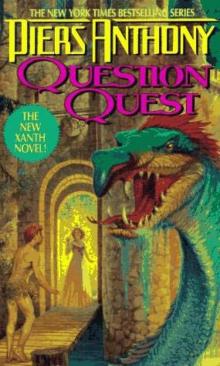 Question Quest
Question Quest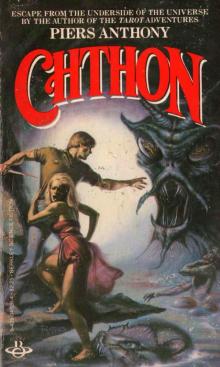 Chthon
Chthon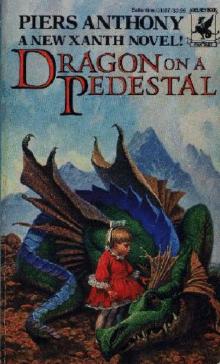 Dragon on a Pedestal
Dragon on a Pedestal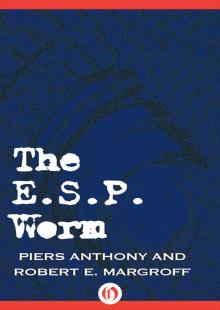 E. S. P. Worm
E. S. P. Worm Hope of Earth
Hope of Earth The Series Boxed Set
The Series Boxed Set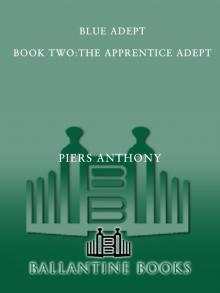 Blue Adept
Blue Adept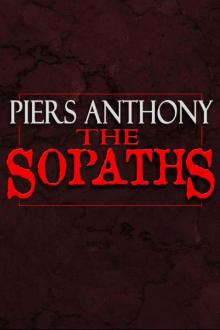 The Sopaths
The Sopaths Beetle Juice
Beetle Juice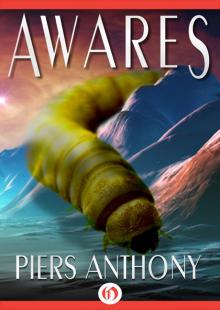 Awares
Awares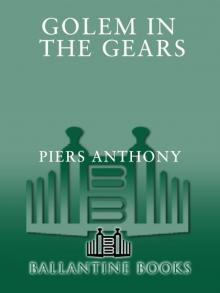 Golem in the Gears
Golem in the Gears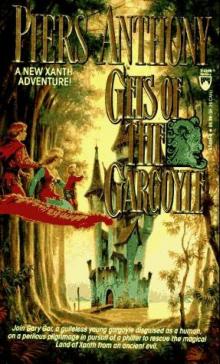 Geis of the Gargoyle
Geis of the Gargoyle Bamboo Bloodbath and Ninja's Revenge
Bamboo Bloodbath and Ninja's Revenge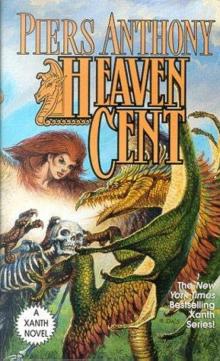 Heaven Cent
Heaven Cent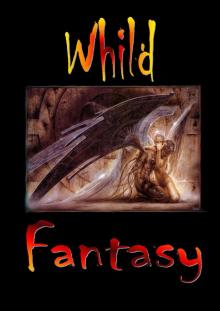 Neq the Sword
Neq the Sword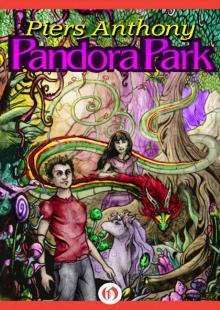 Pandora Park
Pandora Park Juxtaposition
Juxtaposition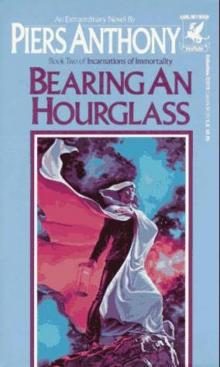 Bearing an Hourglass
Bearing an Hourglass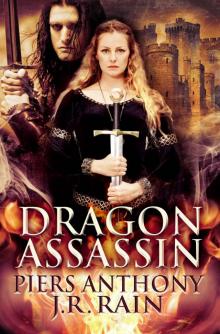 Dragon Assassin
Dragon Assassin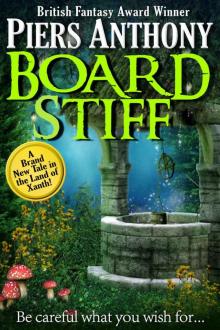 Board Stiff
Board Stiff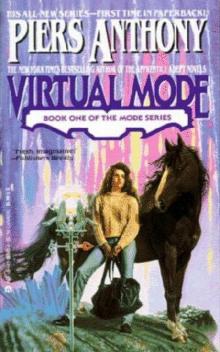 Virtual Mode
Virtual Mode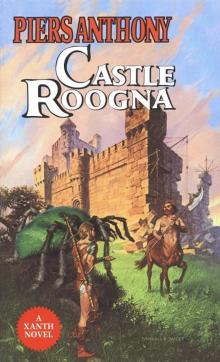 Castle Roogna
Castle Roogna Aliena Too
Aliena Too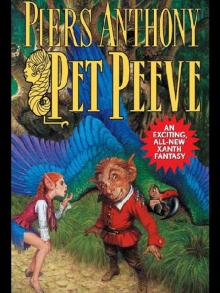 Pet Peeve
Pet Peeve The Metal Maiden Collection
The Metal Maiden Collection Volk
Volk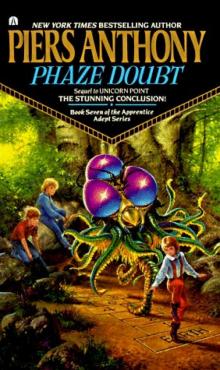 Phaze Doubt
Phaze Doubt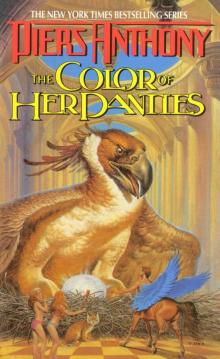 The Color of Her Panties
The Color of Her Panties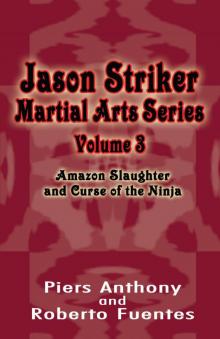 Amazon Slaughter and Curse of the Ninja Piers Anthony
Amazon Slaughter and Curse of the Ninja Piers Anthony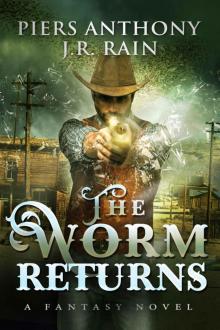 The Worm Returns
The Worm Returns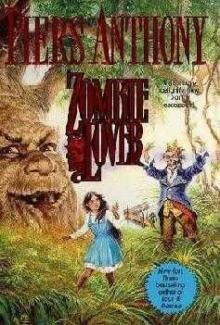 Zombie Lover
Zombie Lover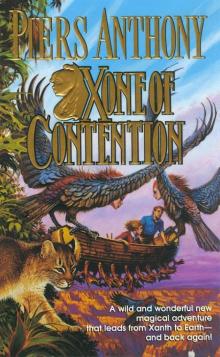 Xone of Contention
Xone of Contention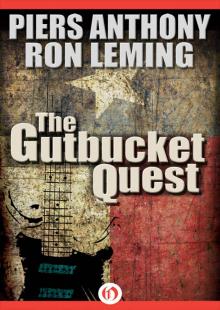 The Gutbucket Quest
The Gutbucket Quest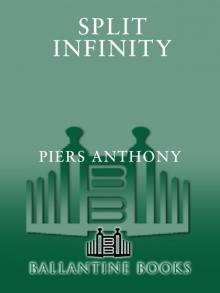 Split Infinity
Split Infinity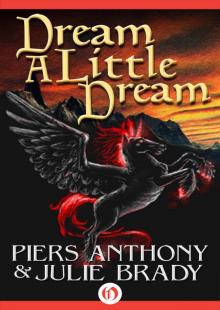 Dream a Little Dream: A Tale of Myth and Moonshine
Dream a Little Dream: A Tale of Myth and Moonshine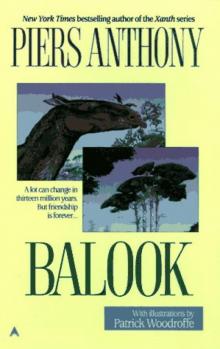 Balook
Balook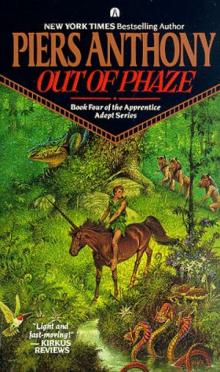 Out of Phaze
Out of Phaze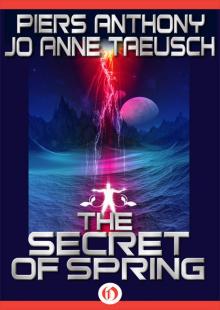 The Secret of Spring
The Secret of Spring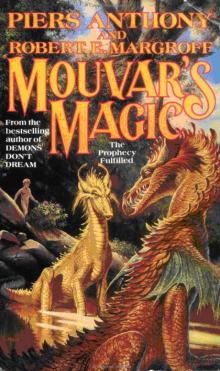 Mouvar's Magic
Mouvar's Magic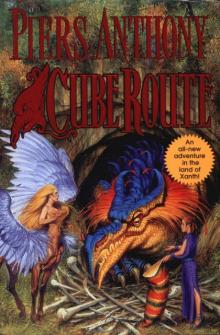 Cube Route
Cube Route Mercenary
Mercenary Total Recall
Total Recall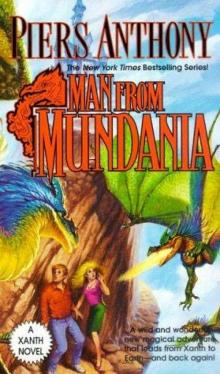 Man From Mundania
Man From Mundania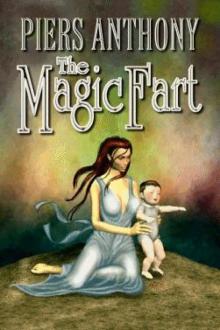 The Magic Fart
The Magic Fart Letters to Jenny
Letters to Jenny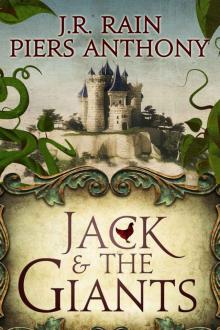 Jack and the Giants
Jack and the Giants Executive
Executive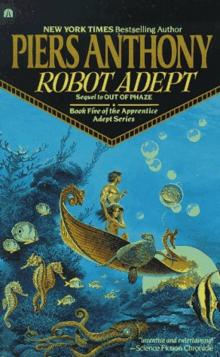 Robot Adept
Robot Adept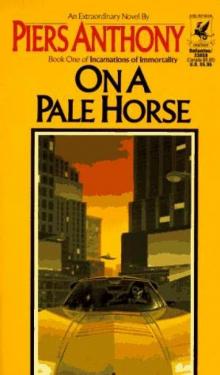 On A Pale Horse
On A Pale Horse Vale of the Vole
Vale of the Vole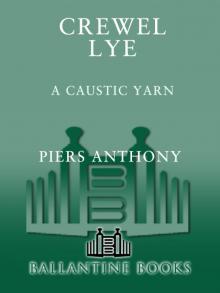 Crewel Lye
Crewel Lye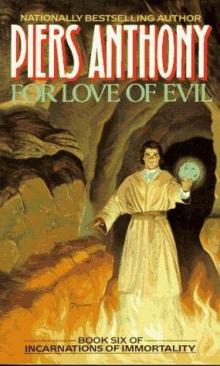 For Love of Evil
For Love of Evil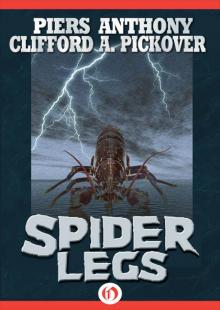 Spider Legs
Spider Legs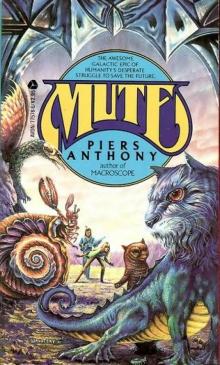 Mute
Mute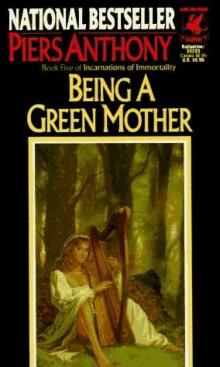 Being a Green Mother
Being a Green Mother Hair Suite
Hair Suite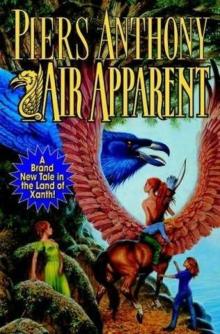 Air Apparent
Air Apparent Politician
Politician Aliena
Aliena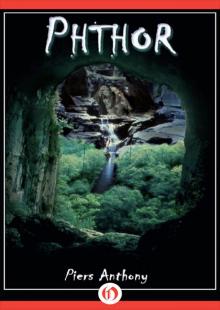 Phthor
Phthor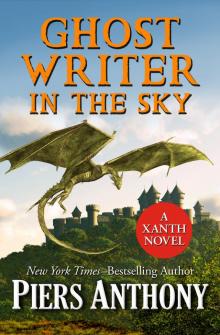 Ghost Writer in the Sky
Ghost Writer in the Sky Pornucopia
Pornucopia Eroma
Eroma Shepherd
Shepherd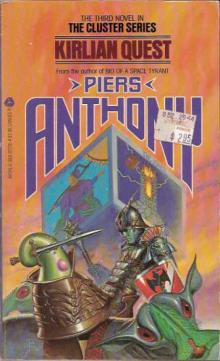 Kirlian Quest
Kirlian Quest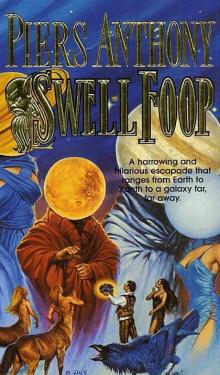 Swell Foop
Swell Foop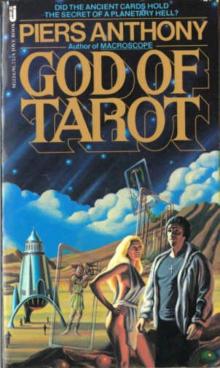 God of Tarot
God of Tarot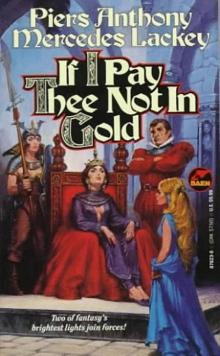 If I Pay Thee Not in Gold
If I Pay Thee Not in Gold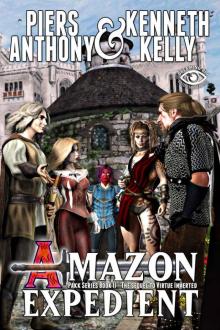 Amazon Expedient
Amazon Expedient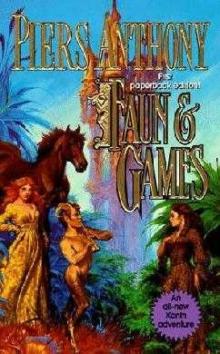 Faun & Games
Faun & Games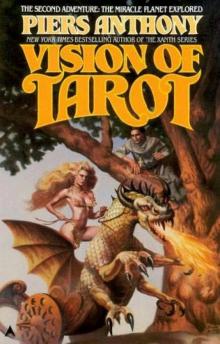 Vision of Tarot
Vision of Tarot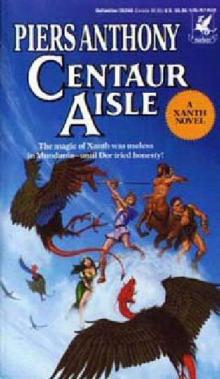 Centaur Aisle
Centaur Aisle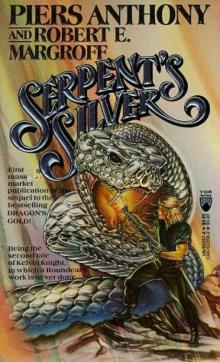 Serpent's Silver
Serpent's Silver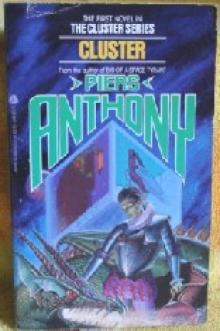 Cluster
Cluster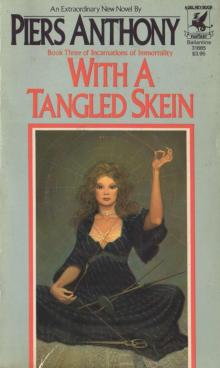 With a Tangled Skein
With a Tangled Skein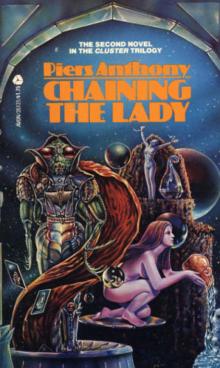 Chaining the Lady
Chaining the Lady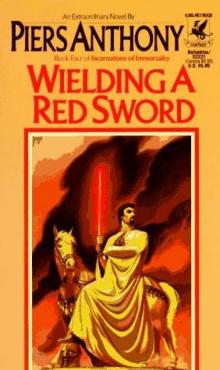 Wielding a Red Sword
Wielding a Red Sword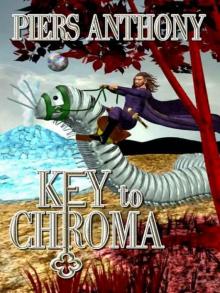 Key to Chroma
Key to Chroma WereWoman
WereWoman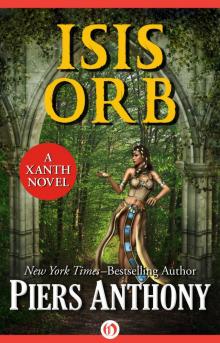 Isis Orb
Isis Orb Hair Peace
Hair Peace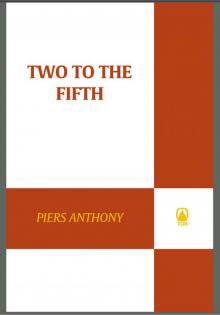 Two to the Fifth
Two to the Fifth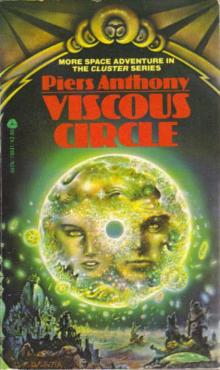 Viscous Circle
Viscous Circle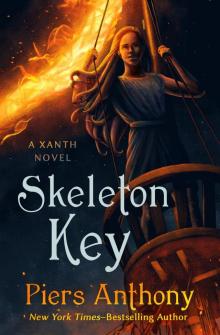 Skeleton Key
Skeleton Key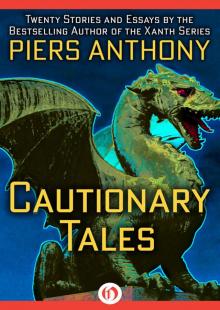 Cautionary Tales
Cautionary Tales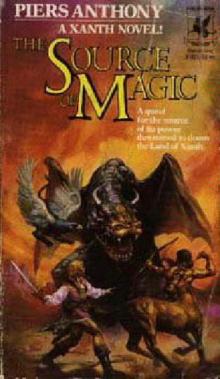 The Source of Magic
The Source of Magic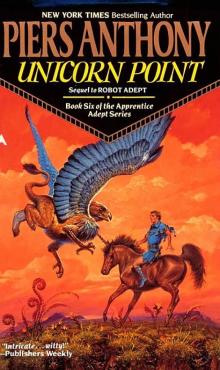 Unicorn Point
Unicorn Point Writer's Retweet
Writer's Retweet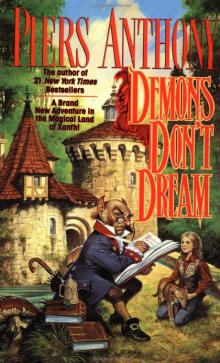 Demons Don't Dream
Demons Don't Dream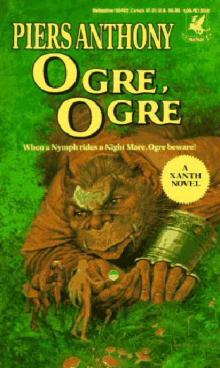 Ogre, Ogre
Ogre, Ogre The Iron Maiden
The Iron Maiden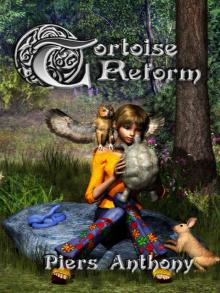 Tortoise Reform
Tortoise Reform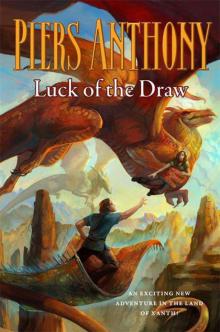 Luck of the Draw
Luck of the Draw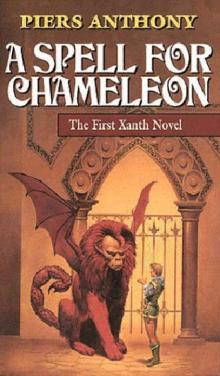 A Spell for Chameleon
A Spell for Chameleon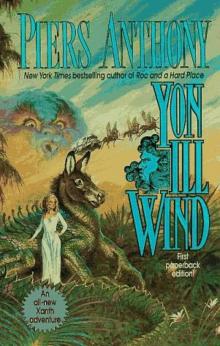 Yon Ill Wind
Yon Ill Wind Currant Events
Currant Events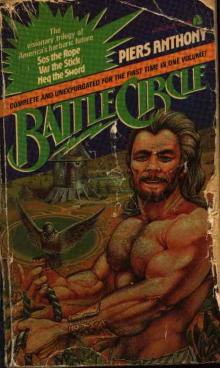 Var the Stick
Var the Stick And Eternity
And Eternity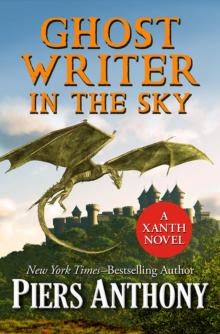 Kiai! & Mistress of Death
Kiai! & Mistress of Death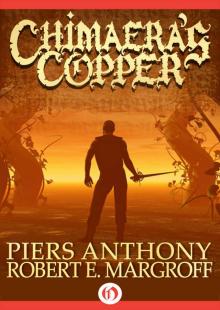 Chimaera's Copper
Chimaera's Copper Refugee
Refugee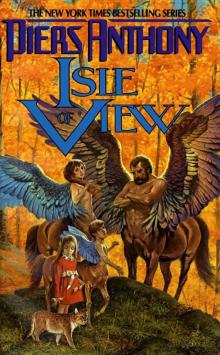 Isle of View
Isle of View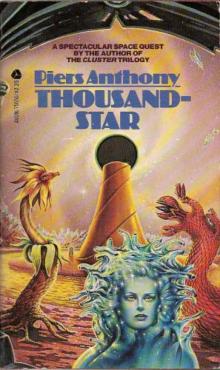 Thousandstar
Thousandstar Mer-Cycle
Mer-Cycle Service Goat
Service Goat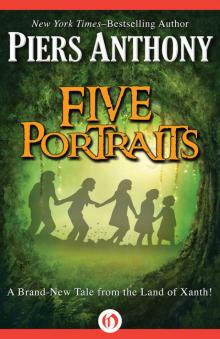 Five Portraits
Five Portraits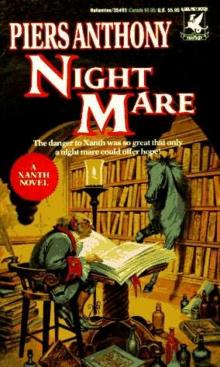 Night Mare
Night Mare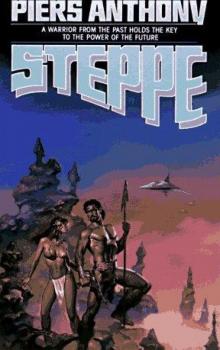 Steppe
Steppe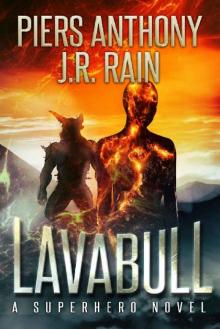 Lavabull
Lavabull Well-Tempered Clavicle
Well-Tempered Clavicle Aladdin Relighted
Aladdin Relighted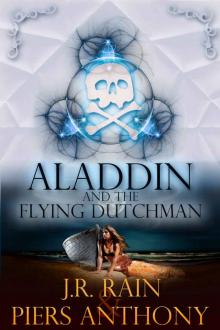 Aladdin and the Flying Dutchman
Aladdin and the Flying Dutchman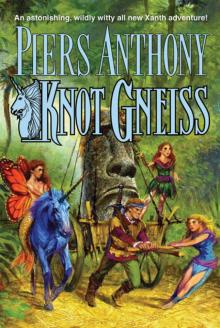 Knot Gneiss
Knot Gneiss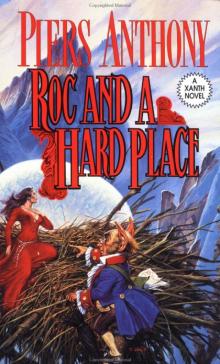 Roc and a Hard Place
Roc and a Hard Place Aladdin Sins Bad
Aladdin Sins Bad Flytrap
Flytrap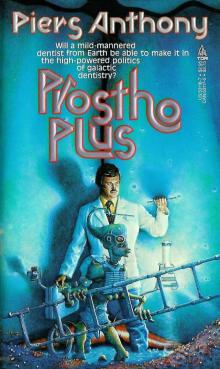 Prostho Plus
Prostho Plus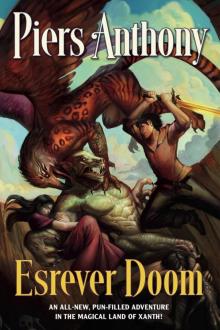 Esrever Doom
Esrever Doom Hair Power
Hair Power The Journey
The Journey Virtue Inverted
Virtue Inverted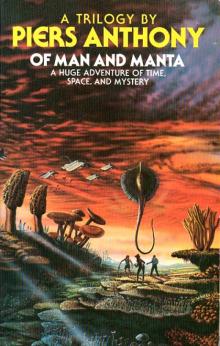 Of Man and Manta Omnibus
Of Man and Manta Omnibus Trail Mix: Amoeba
Trail Mix: Amoeba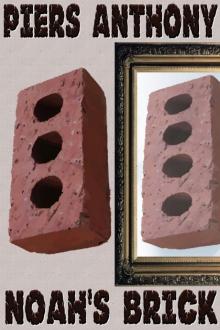 Noah's Brick
Noah's Brick Odd Exam
Odd Exam Magenta Salvation
Magenta Salvation Jest Right
Jest Right Fire Sail
Fire Sail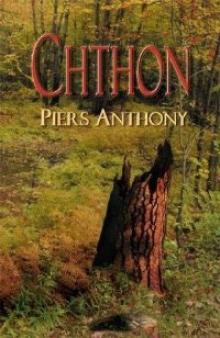 Chthon a-1
Chthon a-1 Amoeba
Amoeba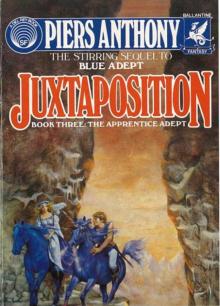 Juxtaposition aa-3
Juxtaposition aa-3 Pira
Pira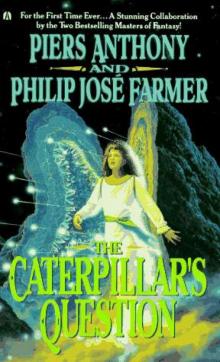 THE CATERPILLARS QUESTION
THE CATERPILLARS QUESTION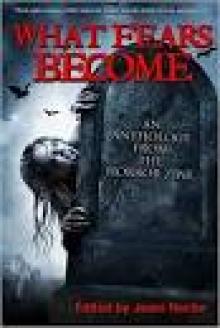 What Fears Become: An Anthology from The Horror Zine
What Fears Become: An Anthology from The Horror Zine Bio of a Space Tyrant Vol. 3. Politician
Bio of a Space Tyrant Vol. 3. Politician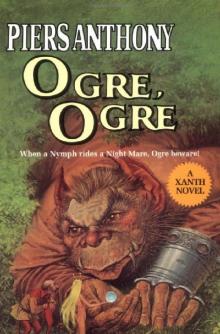 Ogre Ogre x-5
Ogre Ogre x-5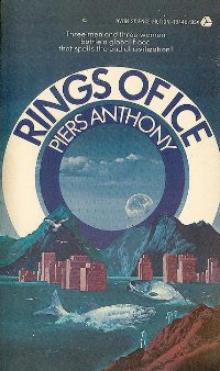 Rings of Ice
Rings of Ice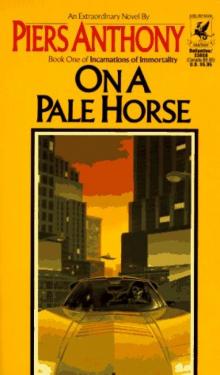 On a Pale Horse ioi-1
On a Pale Horse ioi-1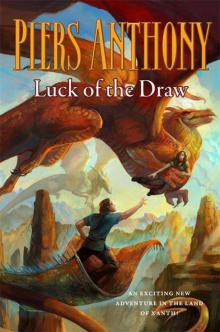 Luck of the Draw (Xanth)
Luck of the Draw (Xanth)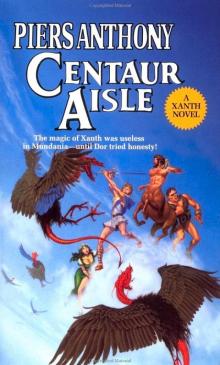 Centaur Aisle x-4
Centaur Aisle x-4 Thousandstar (#4 of the Cluster series)
Thousandstar (#4 of the Cluster series)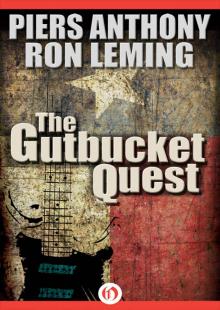 Gutbucket Quest
Gutbucket Quest Isle of Woman (Geodyssey)
Isle of Woman (Geodyssey)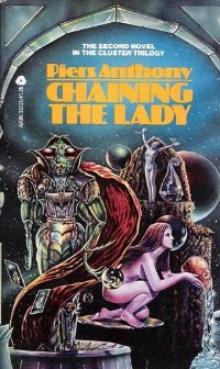 Chaining the Lady c-2
Chaining the Lady c-2 To Be a Woman
To Be a Woman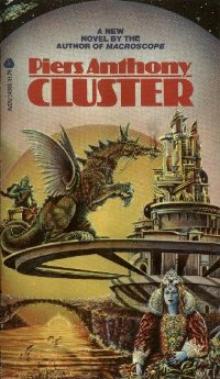 Cluster c-1
Cluster c-1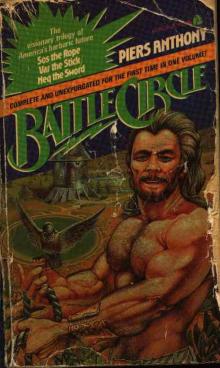 Battle Circle 2 - Var the Stick
Battle Circle 2 - Var the Stick Mercenary (Bio of a Space Tyrant Book 2)
Mercenary (Bio of a Space Tyrant Book 2)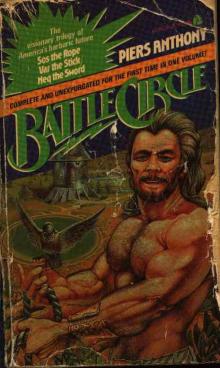 Battle Circle 1 - Sos the Rope
Battle Circle 1 - Sos the Rope Xanth 30 - Stork Naked
Xanth 30 - Stork Naked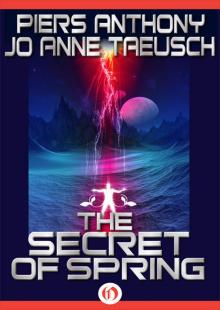 Secret of Spring
Secret of Spring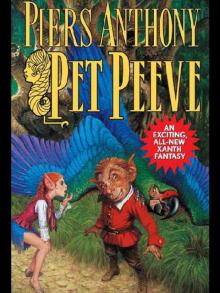 Xanth 29 - Pet Peeve
Xanth 29 - Pet Peeve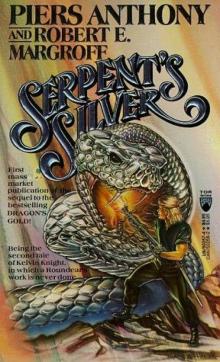 Serpents's Silver
Serpents's Silver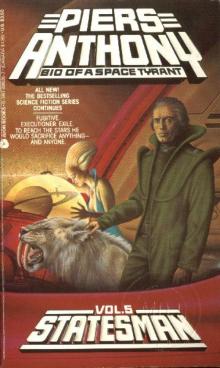 Statesman by Piers Anthony
Statesman by Piers Anthony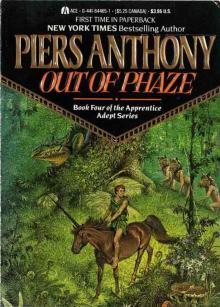 Out of Phaze aa-4
Out of Phaze aa-4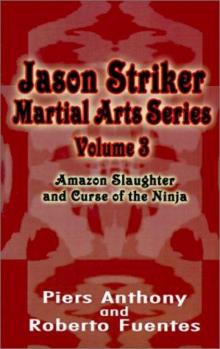 Amazon Slaughter & Curse of the Ninja
Amazon Slaughter & Curse of the Ninja